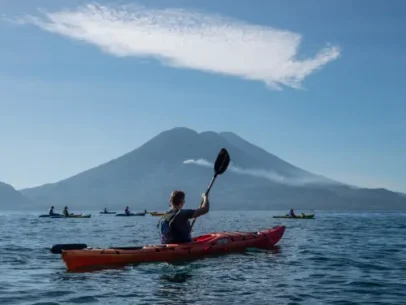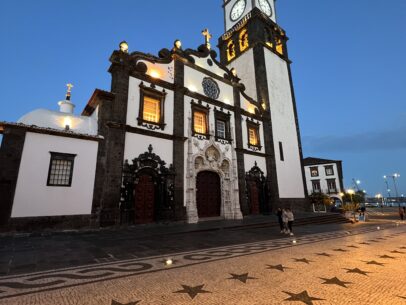
The Bird’s Word Blog
Is Travel a Political Act? Visiting Controversial Destinations

Myanmar. Saudi Arabia. Cuba. Iran. Uganda.
As a 45-year-old company with a reputation for offering cultural travel to remote destinations, we are familiar with questions about the political and moral integrity of visiting countries with repressive governments or controversial policies. Some would-be travelers are uncomfortable spending tourism dollars that will support the economic success of governments that they believe are depriving citizens of fundamental human freedoms. Others hope that spurning a country in their choice of destination will make a statement to that government’s leaders about its policies. Guided by the core values of Journeys International, these are serious choices for me and for our company – yet we have landed on the side of continuing to visit these places.
Travel advocate and writer Rick Steves encourages travelers to think of travel as a political act in his popular book, Travel as a Political Act, first published in 2009. His call to action asks travelers to expand their thinking as citizens of their own countries and as citizens of the world based on their cross-cultural travel experiences. He suggests that worldwide travel can change the way people view and participate in their home communities. Witnessing socialized medicine in Europe may motivate healthcare reform activism at home. Meditating with monks in Tibet may inspire joining hometown religious congregations.
I’m aligned with believing that travel can change people. We travel for many reasons – to escape our daily lives, to make shared memories, to lose ourselves, and to find ourselves. Increasingly, data from the Adventure Travel Trade Association finds that people travel intentionally to achieve transformation. Adventure travel particularly consists of experiences that take participants beyond their comfort zones in ways that open them to new discoveries, insights, connections, and ways of conceiving of their own potential.
Travel’s transformative power ranges far beyond the political. We would do better to focus on other realms: psychological, spiritual, moral, professional, aesthetic, or communal. The risk in considering travel as a political act is in confusing the target of your political action – it is yourself. Therefore travel itself is not political activism; that step comes, if desired, after returning home and acting on the lessons of the trip.
When I hear from would-be explorers about their political hesitation to visit destinations with repressive political leaders, I understand their concerns but I think they are missing the broader potential. By boycotting travel to Uganda, travelers may hope to communicate to that country’s congress that legislation outlawing free expression of LGBTQ identity is unacceptable to the global community. By avoiding tours to Saudi Arabia, travelers may intend to express their dismay at misogynist policy and cultural norms. Meanwhile, the Ugandan government makes its money from agriculture, the Saudi government makes its money from oil, and ordinary citizens are deprived of contact with visitors from outside their countries. Potential travelers are deprived of the inevitable learning from cross-cultural travel in places with such different cultures. Connections are missed, and stories are left untold.
This is not a casual concern for me. As Pico Iyer writes in his famous essay, Why We Travel, “One of the subtler beauties of travel is that it enables you to bring new eyes to the people you encounter.” Over the many decades that Journeys International has operated trips to Myanmar, we have seen firsthand how eye-opening it is for local people to learn from visitors that there is a different kind of world out there beyond the borders of their own country. In the book Nothing to Envy, Barbara Demick writes similarly about how enlightening it is for North Koreans to notice their first hints of the free world. The potential for travelers to interact with, and impact, individual citizens by visiting goes far deeper than their potential to impact foreign governments by staying home.
Furthermore, the potential political impact upon returning home may be greater than what could be achieved by abstaining from travel in the first place. Arnie Weissman, the editor of Travel Weekly, wrote an editorial on March 3, 2014, called, “Do We Boycott Uganda?” The country was then considering similar legislation to the new anti-LGBTQ package recently passed by Uganda’s parliament. Weissman wrote about visiting repressive regimes around the world where citizens wanted their personal stories to be shared. When we travel to Uganda, travel to Saudi Arabia, travel to Cuba, travel to China – then we can retell the stories of the people we meet and how they affect us.
I should note that I also believe that the best place to travel is just on the far side of our comfort zones, in the zone of discovery, curiosity – and safety. If we push too far, to where we feel unsafe, we won’t be ripe for learning or transformation. Travel decisions remain deeply personal choices. There are very real risks to physical safety in many places around the world, and we all have to assess our own relationships with that risk. For me, as a straight, cis, white, female, Jewish traveler, I’m privileged to feel personally safe in many places others might not, like Israel or Uganda; I’m more uncertain some, like Iran.
My choice not to visit Iran right now isn’t political. It’s about safety. And I also feel sad about it, because I want to know what life is like for the women there, the handful of Jews who are there, for all the people who live there who have some things in common with me and other things they view very differently from how I see them. So I hope it’s safer to visit someday. When we forgo travel, the sacrifices are connection, transformation, and the potential to make a broader impact from the lessons of our experience.

Design an adventure with Journeys International!
With over 40 years of experience, we create experiences that match your goals.
Start Planning

